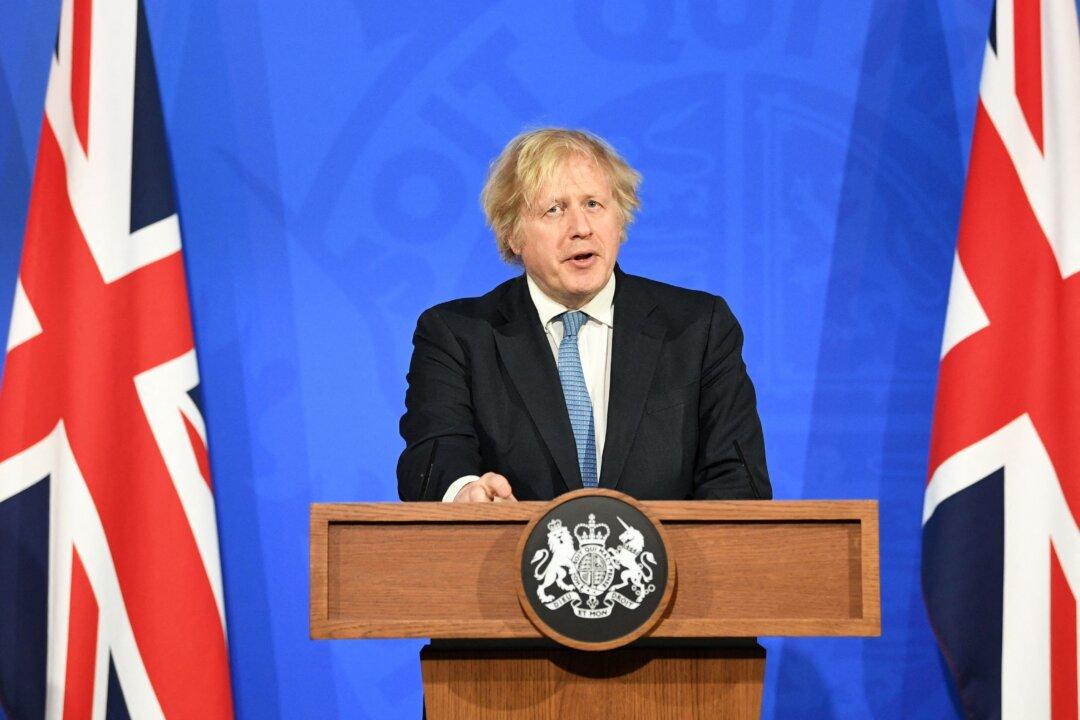The UK government said on Monday that “COVID-status certification” will be tested in domestic settings so that CCP virus restrictions can be eased more safely.
At a press briefing held in Downing Street, Prime Minister Boris Johnson said that all shops, gyms, hairdressers, and outdoor hospitality areas in England will be reopened next week following the government’s roadmap out of the CCP (Chinese Communist Party) virus lockdown.





